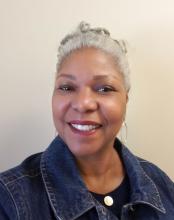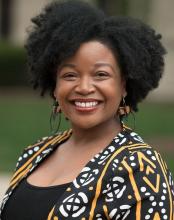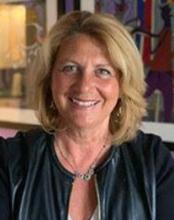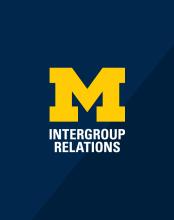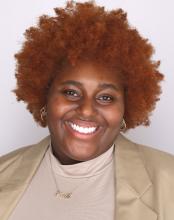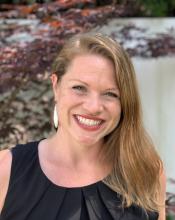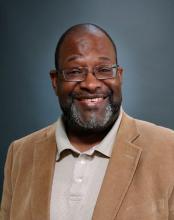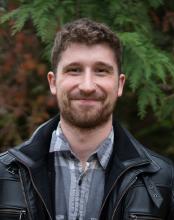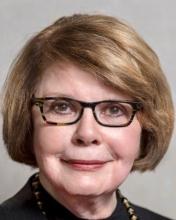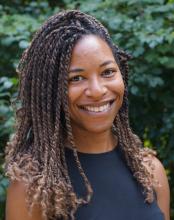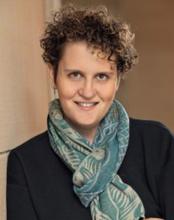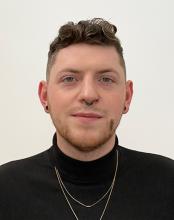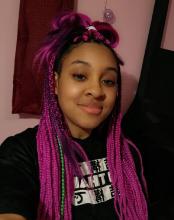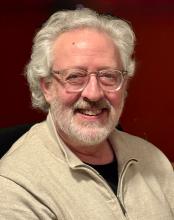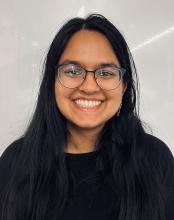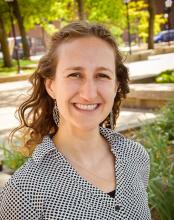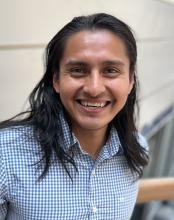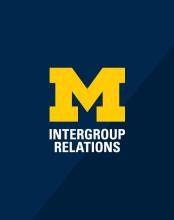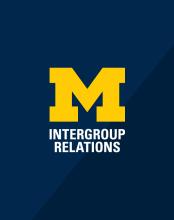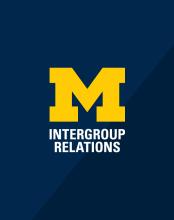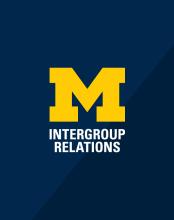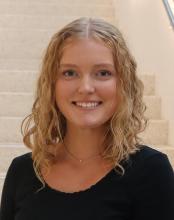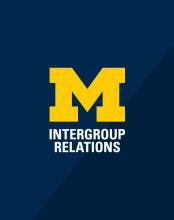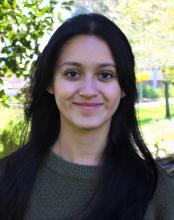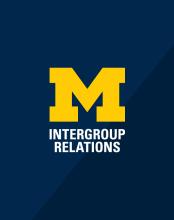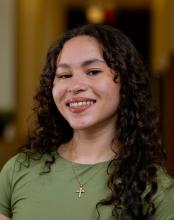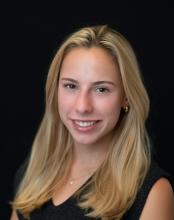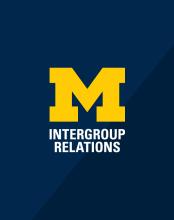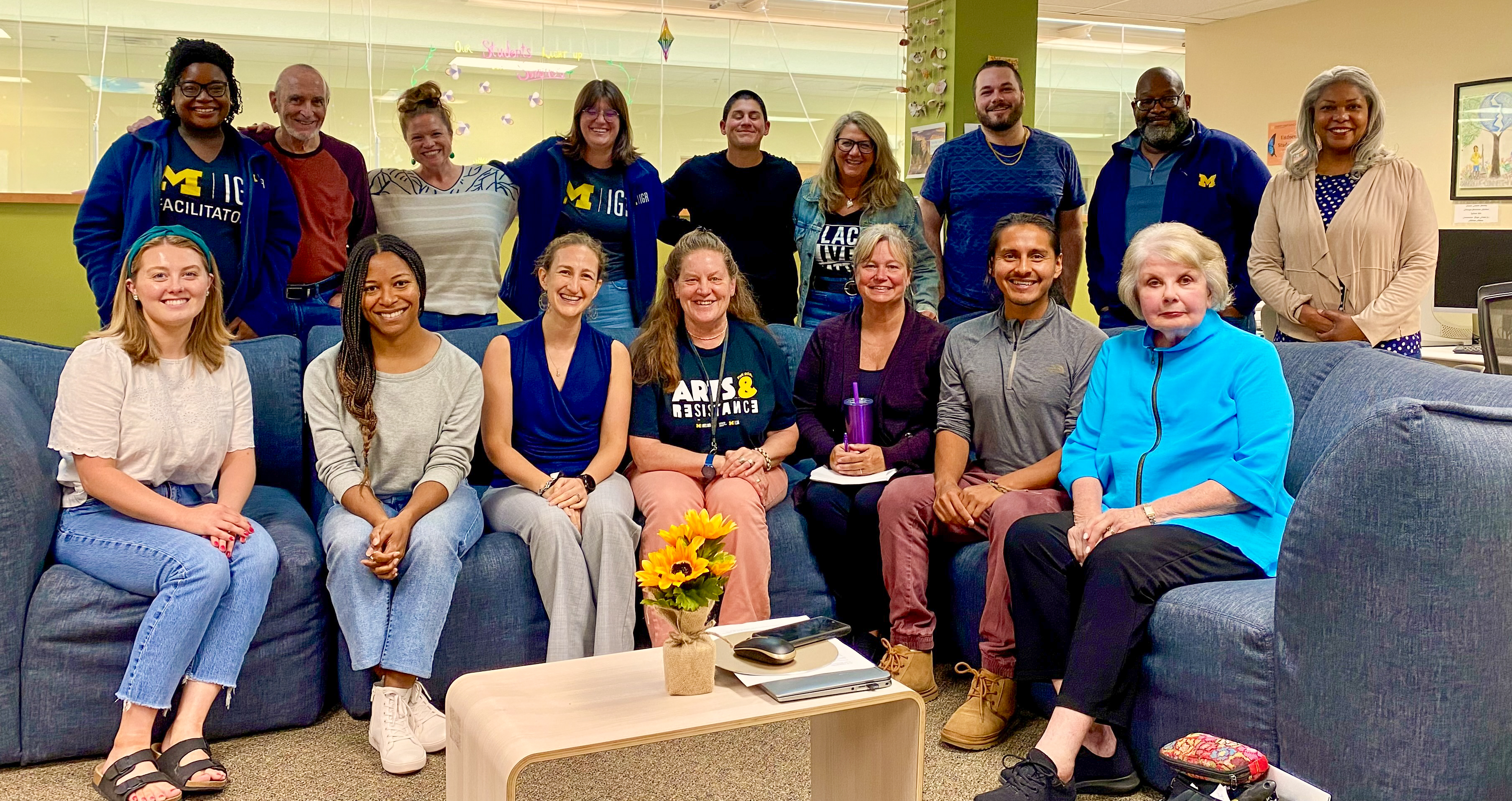
IGR's unique and transformative partnership—between the Division of Student Life and the College of Literature, Science, and the Arts—is led by co-directors Monita Thompson, Christina Morton (acting), Donna Rich Kaplowitz, and a staff of faculty, professionals, and students.
Directors
Monita Thompson
Monita Thompson serves as the Student Life co-director of The Program on Intergroup Relations. Her student affairs work of more than 25 years has focused on educating students in intergroup relations and social justice education, specifically the training, development, and support of peer educators in skills and techniques of intergroup dialogue facilitation, conflict management, and supporting students in their journey to becoming a social change agent.
Christina S. Morton
Christina S. Morton, PhD is an acting co-director of The Program on Intergroup Relations. In her role, she provides strategic leadership and administrative support toward advancing IGR’s mission as well as teaches courses focused on the training and development of peer educators in dialogue facilitation. Her research explores diverse students’ experiences with and meaning making of social justice education as well as how cultural resources, such as spirituality, contribute to the success of Students of Color in STEM fields.
Donna Rich Kaplowitz
Donna Kaplowitz, PhD is the director of the Difficult Dialogues Meet the Moment Initiative and LSA faculty co-director of The Program on Intergroup Relations. Through Difficult Dialogues, Donna leads a partnership between the University of Michigan and leading national experts to build dialogic capacity and skills at U-M and beyond. She has developed campus workshops, launched the initiative's popular coaching program, and supported a growing multi-disciplinary network of practitioners dedicated to learning about conversations across difference.
Staff and faculty
danny alvarez
danny alvarez is a lecturer with The Program on Intergroup Relations in the University of Michigan's College of Literature, Science, and the Arts. They're a passionate facilitator, educator, and organizer who has applied social work practices to their work for the last decade. With practices strongly rooted in popular education and intergroup dialogue pedagogy, they have taught, developed and managed programs at both U-M and Stanford University over the last 5 years.
Imani Barnes
Imani Barnes is a lecturer at The Program on Intergroup Relations. Her passion for social justice education is evident in her master’s degree from the University of Michigan in Higher Education with a concentration in Diversity & Social Justice, providing her with a strong foundation for expertise in this field.
Charles Behling
Charles Behling, PhD retired from the psychology faculty at U-M. A clinical psychologist, he served for 15 years as co-director of IGR. Since retirement, he has consulted with more than 70 universities across the nation regarding the creation of intergroup dialogue programs, based on the U-M model. His PhD and MA are from Vanderbilt University. He also holds an MA in journalism from the University of South Carolina. His interests in social justice are shaped by his having grown up in the rural South in the days of Jim Crow, before the Civil Rights Movement.
Mark Chesler
Mark Chesler, PhD is a professor emeritus of sociology at the University of Michigan and a founding faculty member of The Program on Intergroup Relations. Mark is an activist scholar conducting research, teaching, consulting and organizing on issues of social justice and personal/organizational change around race and gender equity, and of the psycho-social impact of childhood cancer.
Sara Crider
Sara Crider, MSW, PhD is a lecturer for the Department of Sociology and The Program on Intergroup Relations. She is particularly interested in program development, evaluation, inclusive and empowering curricula, and political advocacy. Her research focuses on social justice education, attitude change, intervention design, and intersections of whiteness, gender and sexuality. She also works as a consultant with various organizations to develop and evaluate programs and processes to bolster inclusivity, diversity, and access.
Hailey Emery
Hailey Emery is the student administrative assistant for The Program on Intergroup Relations. She is responsible for providing support for IGR courses and instructional needs, National Intergroup Dialogue Institute, and Community of Scholars. She also supervises IGR office assistants, helps manage shared space, and manages circulation and maintenance of the Mark Chesler Library holdings. Hailey has a BS in secondary education language, literature, and writing from Eastern Michigan University and holds teaching certifications in English and Speech for 6-12 education.
Roger B. Fisher
Roger Fisher (he/him/his) is an associate director of The Program on Intergroup Relations. In his role, Roger teaches training and practicum classes, directs IGR's partnership with the School of Social Work on the Summer Youth Dialogue Program, performs high-level administrative functions for IGR, trains K-12 professionals, consults with other higher education institutions on dialogue programs and works on special Student Life projects. He is an U-M alumus and has a BS in psychology and also did graduate work in psychology.
Patricia Gurin
Patricia Gurin, PhD is the Nancy Cantor Distinguished University Professor Emerita of Psychology and Women’s Studies at the University of Michigan. She is a faculty associate of the Research Center for Group Dynamics at the Institute for Social Research and of the Center for African and Afro-American Studies. She directs the research program of The Program on Intergroup Relations, a curricular program co-sponsored by the College of LS&A and Student Life. A social psychologist, Dr.
Stephanie Hicks
Stephanie is a lecturer at The Program on Intergroup Relations and a faculty affiliate of the Institute for Research on Women and Gender at U-M. As a lecturer, Stephanie teaches courses for IGR and coordinates the Race & Ethnicity Engagement efforts between IGR and the College of Literature, Science, and the Arts. A Chicago native, Stephanie received a dissertation grant from the Institute for Research on Race and Public Policy at the University of Illinois at Chicago and was named a Diversifying Higher Education Faculty Fellow by the Illinois Board of Higher Education.
Alice Mishkin
Alice Mishkin is a PhD student in the Department of American Culture at the University of Michigan. Alice has frequently lectured for the Intergroup Relations Program at the University of Michigan over the years. She was previously the program coordinator for the Community Action and Social Change undergraduate minor in the University of Michigan School of Social Work. During her time in JCLP, she worked to develop intra-Jewish dialogue programs around Israel, gender and Jewish identity.
Patrick Kazyak-Albaladejo Muñiz
Patrick Kazyak-Albaladejo Muñiz is the associate director for strategic partnerships and dissemination at The Program on Intergroup Relations. In their role, Patrick provides leadership and guidance in the creation, implementation, and assessment of strategic relationships and partnerships to help U-M build capacity for dialogic education and advance the field of intergroup relations education nationally. They are also responsible for coordination of the National Intergroup Dialogue Institute as well as IGR’s consultation program.
Nick Pfost
Nick Pfost (he/they) is a communications strategist at the University of Michigan, serving The Program on Intergroup Relations, Office of Multi-Ethnic Student Affairs, and Spectrum Center. An MPP-trained communicator with over a decade of experience in higher education and nonprofits, they lead in each unit on communications, marketing, and design to advance their missions and impact.
Storm Saddler
Storm Saddler is the senior administrative assistant at The Program on Intergroup Relations. They are invested in the overall wellbeing of students, staff, and the surrounding community, and are invested in creating a nurturing environment for their personal and academic success.
Todd Sevig
Dr. Todd D. Sevig is currently a senior advisor to the directors at The Program on Intergroup Relations and a senior advisor to the director at the Matthei Botanical Gardens & Nichols Arboretum, both at the University of Michigan. He was the director of Counseling and Psychological Services at the University of Michigan from 2001 - 2024 after working there since 1989.
Vibha Shivakumar
Vibha Shivakumar is a program coordinator for the Student Experience Team at The Program on Intergroup Relations. They are responsible for overseeing the Student Experience Team (SET), which works to ensure that IGR students have joyful, valuable, and sustained engagement in our community. In addition to this, they work closely with student recruitment and communications. Vibha earned a Bachelor of Arts degree in cognitive science from the University of Michigan.
Deborah Slosberg
Deborah Slosberg is the assistant director for The Program on Intergroup Relations. She works with the Student Life team to provide strategic leadership for IGR's co-curricular programming through CommonGround, SET, and strategic partnerships. She helps coordinate the annual National Intergroup Dialogue Institute as well as provides consultations to outside colleges and universities. Deborah also teaches and assists with research and assessment efforts.
Cesar Vargas-Leon
Cesar Vargas-Leon is a senior program manager supporting IGR’s campus partnerships and CommonGround. He works with a team of graduate and undergraduate students to execute requested programs that raise awareness about social identities, prejudice, stereotyping, power, privilege, and oppression for students who are part of the University of Michigan’s community. Cesar is passionate about transforming spaces, structures, and systems through the art of storytelling. He holds a BA in sociology and Latinx studies from the University of Michigan.
Meaghan Wheat
Meaghan Wheat is the program manager for CommonGround at The Program on Intergroup Relations. She supervises a team of undergraduate and graduate students who plan, develop, and facilitate requested workshops on social identity, communicating across identities, power and oppression in groups, entering communities, and allyship across campus. She also supports IGR's Summer Youth Dialogue program. Meaghan holds a BA in psychology and political science, an MSW, and an MA in higher education from the University of Michigan.
Student colleagues
Haarika Gurivireddygari
Haarika Gurivireddygari (she/her/hers) is a student office assistant at The Program on Intergroup Relations, where she helps handle administrative tasks for the office. Haarika assists with planning recruitment events, curriculum, and other celebrations as well. She has worked for IGR since 2021 and loves the environment here! Haarika was interested in working with IGR because she believes the curriculum is really impactful for students and wanted to support the program. Haarika is currently a BBA senior at the Ross School of Business and minoring in gender and health.
Elsa Hall
Elsa is a junior majoring in political science with a minor in intergroup relations. She grew up in North Carolina and loves cats, books, and ballet. She first joined CommonGround as a workshop facilitator before becoming the program assistant. She has found CommonGround to be a meaningful space of growth and connection. She can be found outside of CommonGround working on theater productions and volunteering at SAPAC. In the future, she will incorporate her social justice work into politics to enact change.
Katharine Lawson
Katie Lawson is a student recruitment staff member with The Program on Intergroup Relations. Katie is a senior majoring in movement science and minoring in community action and social change. She has been affiliated with IGR since the winter of her sophomore year, beginning with engagement in intergroup dialogues as a participant and later as a facilitator. Her passion for social justice will be utilized in a career in the legal field.
Sophie Phillips
Sophie Phillips is a program coordinator for CommonGround at The Program on Intergroup Relations. Sophie is a senior majoring in political science and French with a minor in intergroup relations education and a joint certificate in community action and social change. Sophie has been involved with IGR since her freshman year, and has been a dialogue participant since the age of eight. She has previously served as a Workshop Facilitator and program assistant in CommonGround and has facilitated several ALA courses as well as Summer Youth Dialogues and the Youth Social Justice Fellows Program.
Elisa Vega
Elisa is a graduate intern for CommonGround at The Program on Intergroup Relations. She is currently pursuing her Master of Arts in higher education with a focus in student access and success with the Center for the Study of Higher and Postsecondary Education at the University of Michigan. She also works as a Higher Education Research Intern with the Community-based Research on Equity, Activism, & Transformative Education (CREATE) Center.
Madison Wood
Madison Wood (she/her) is a student office assistant at The Program on Intergroup Relations, where she helps handle administrative taste for the office. Madison assists with planning recruitment events and curriculum development. Her passion for social equity brought Madison to work at IGR in 2024 as she believes the curriculum is very impactful for students. Madison is a History major in the college of Literature, Science, and the Arts while fulfilling a Sociology minor in Law, Justice, and Social Change.
Not sure who to contact?
Reach out to our team and someone will reply to you as soon as possible.

